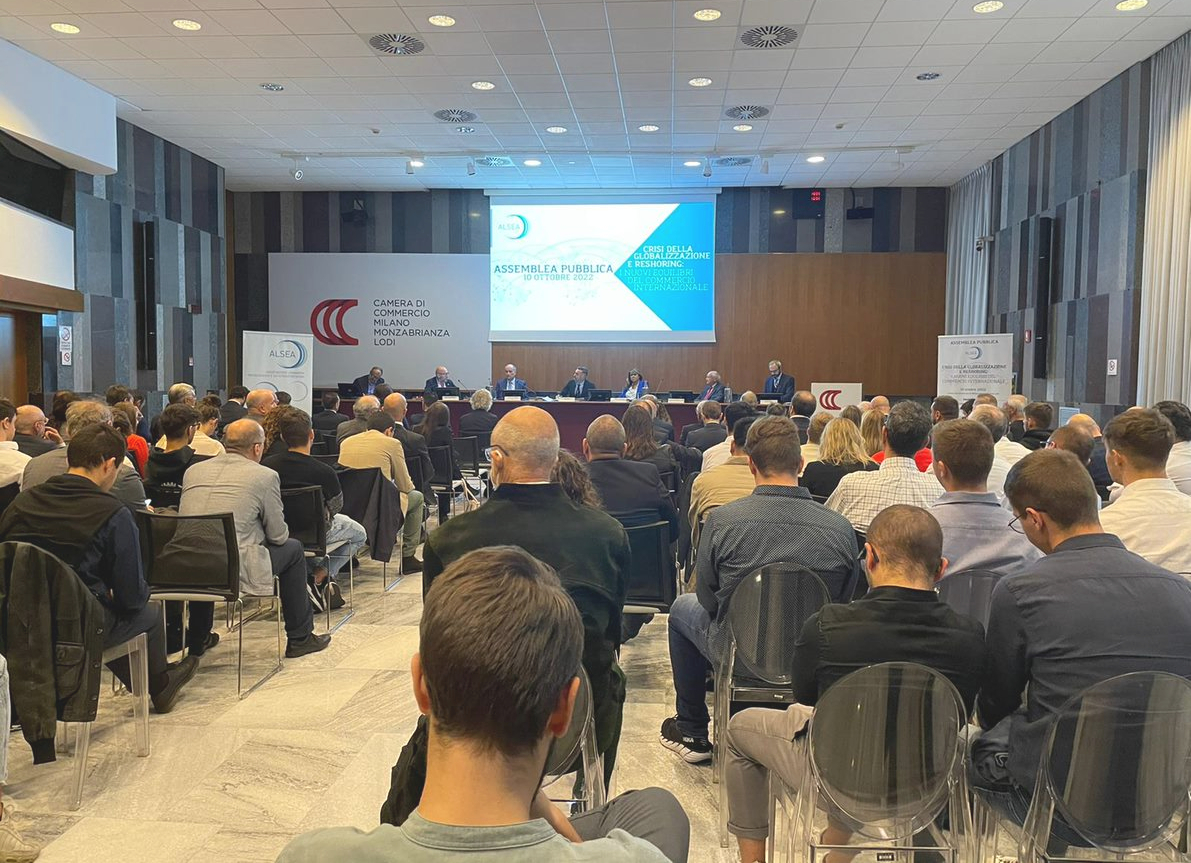
The Lombard Association of Freight Forwarders and Hauliers Alsea highlighted the need to solve three problems that curb Italy's international trade. Over of today's public assembly of the association at the headquarters of the Chamber of Commerce of Milan, Monza Brianza Lodi, Betty Schiavoni, president of Alsea, highlighted that health maritime and air is characterized by a chronic lack of staff, doctors and technicians, who ensure that a air shipment that arrives at Malpensa in less than 24 hours of flight must also wait 5-6 days in certain periods for the release of a simple documentary clearance. "We are - he denounced - losing traffic to European ports and airports. A few doctors and technicians would be enough to overcome the problem but not you can recruit them. Let's solve the problem. First of all, let's remove the limited number for access to the faculty of medicine'.
 Schiavoni noted that there is also "a chronic lack of staff in public administrations. Eliminate- proposed the president of Alsea - the feedback of the Guard of Import and export finance and let's allocate it to other tasks, given that Italy is the only country in Europe that has a double import and export control of the Customs and the Guardia di Finanza: we can no longer afford it."
Schiavoni noted that there is also "a chronic lack of staff in public administrations. Eliminate- proposed the president of Alsea - the feedback of the Guard of Import and export finance and let's allocate it to other tasks, given that Italy is the only country in Europe that has a double import and export control of the Customs and the Guardia di Finanza: we can no longer afford it."
Furthermore - he added - "the objectives of the officials public authorities intervening at customs time must be Modified. The premiums - explained Schiavoni - must be calculated not only on the basis of the checks performed but also on the growth of traffic, guaranteed by the efficiency of the administrations themselves. If in fact, it is an indispensable objective to guarantee controls efficient, as is that of allowing traffic to grow to make the Italian economy prosper. A goal not it must be to the detriment of the other: we need a right balance and, above all, the right attention to both these aspects".
During the assembly there was talk, in particular, of the evolution of new trends such as reshoring, i.e. choice by some companies - which had previously relocated - to return to Italy. Stefano Elia, professor of International business of the Politecnico di Milano, presented the results of a survey conducted on a sample of more than 700 companies to understand the choices of localization of activities production and supplies of Italian companies and the motivations underlying their choices. This investigation showed that about 30% of the companies that have relocated said they have already made a change in the strategy of localization, while the remaining 55% continue to maintain unaltered its choice of location. The backshoring of the production (total or partial) has so far been chosen by the 16.5% of the companies that had carried out production offshoring. More than 12% said they planned to bring back Italy production currently located abroad in the medium-long term (3-over 5 years). 14%, on the other hand, opted for a change of location abroad (nearshoringo further offshoring).
